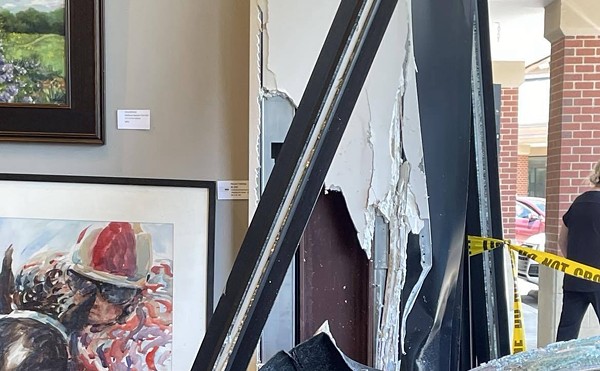I owe a debt of gratitude to Angelina Jolie, which is unexpected given my cynical self typically scoffs at rich Hollywood types with whom I can’t relate. But as it turns out, I do have one thing in common with arguably the world’s most attractive human — we both are genetically flawed.
The average woman has a 7 percent chance of getting breast cancer. The likelihood that I will develop the disease hovers close to 87 percent. That’s because I carry a “faulty gene” known as BRCA1, just like Angelina. (Sadly, the physical similarities end with a single bad gene …)
Last week, the actress shared via a New York Times editorial that she underwent a double mastectomy after testing revealed an inherited gene mutation that greatly increases her risk of breast and ovarian cancer.
I went through the same genetic testing three years ago and received the same result. Since then, that grim news has remained tucked in a part of my brain reserved for “unpleasant things to be dealt with later.”
Perhaps it was just the right time, but Jolie’s editorial nudged this idle internal dialogue to a part of my brain labeled “shit I need to address post haste.” It’s time to prepare for the future — a future I’d prefer not be dictated by fate and my family medical history, at least not if I can help it.
My maternal grandmother was diagnosed with breast cancer at age 38. Less than two years later, she died from the disease, leaving behind a teenage daughter. That girl would grow up to have her own family, including three children, myself the youngest and only girl.
I was 7 when I first heard the word “cancer.” I didn’t grasp the gravity of the illness, only that Mom was sick enough to warrant a hospital stay. She underwent a single mastectomy, followed by six months of chemo.
Two decades later, a preventative MRI detected cancer in my mother’s other breast, and she again underwent treatment — surgery followed by radiation. Her oncologist recommended genetic testing, which insurance covered due to a strong family history and recurrence of the disease. The test came back positive, meaning it was my turn. I agreed but had no intention of taking “drastic” measures, regardless of the result.
My odds of having the mutation were 50/50, and I was inexplicably confident luck was on my side. But my genetic makeup had long ago been determined, and luck had nothing to do with it.
A genetic counselor explained the results and outlined my options: 1) do nothing, other than an annual mammogram and MRI to detect breast cancer early if it occurs; 2) when I’m finished having children, begin a lengthy regimen of a drug like Tamoxifen, which reduces the risk of breast cancer by 50 percent, but not without side effects, like early menopausal symptoms; or 3) undergo a bilateral mastectomy, decreasing my chance of breast cancer by 98 percent.
I was 31 and newly pregnant when I received the news, and the counselor recommended I revisit the matter once I was finished having children. I’m now 34 and expecting my second (and most likely last) child in a few weeks.
In other words, it’s time to devise a plan.
Even before undergoing genetic testing, I had always anticipated getting breast cancer, beating it, and moving on. And although the disease is highly treatable if detected early, there are no guarantees, a fact that resonates now more than ever. For one thing, I’m just a few years away from the age when my mother and grandmother were diagnosed. I’m also a mother, and the prospect of letting nature take its course when I have this medical knowledge and the ability to take preventative action feels like gambling with my life — and, indirectly, the lives of my family.
So it’s no longer if I will undergo a mastectomy, but when.
It is a decision I’d been leaning toward, albeit reluctantly and silently, due in part to uncertainty and fear of judgment. After reading Jolie’s editorial, however, I feel more prepared to embrace this course of action.
Though Jolie was met with a swell of support, some have suggested a double mastectomy was radical. That said, there was a time when cracking open one’s chest to unblock arteries seemed extreme; today, no one questions the sanity of a person seeking bypass surgery to prevent a heart attack.
As previously mentioned, I’m expecting my second child — a girl. By the time she’s an adult, I’m confident medicine will have advanced enough to render this conversation irrelevant. Regardless, I hope my daughter is strong enough to make decisions in life that are right for her, no matter how difficult. And hopefully, I’ll be around to help.
*This article has been updated to better explain the drug Tamoxifen, specifically the recommended length of use.





